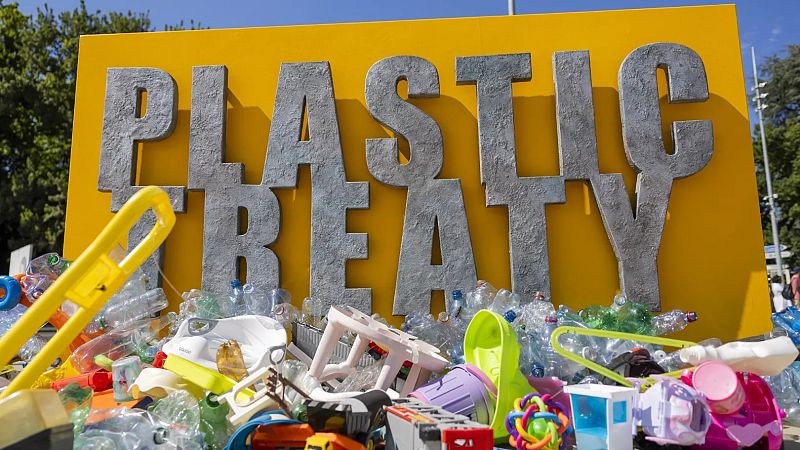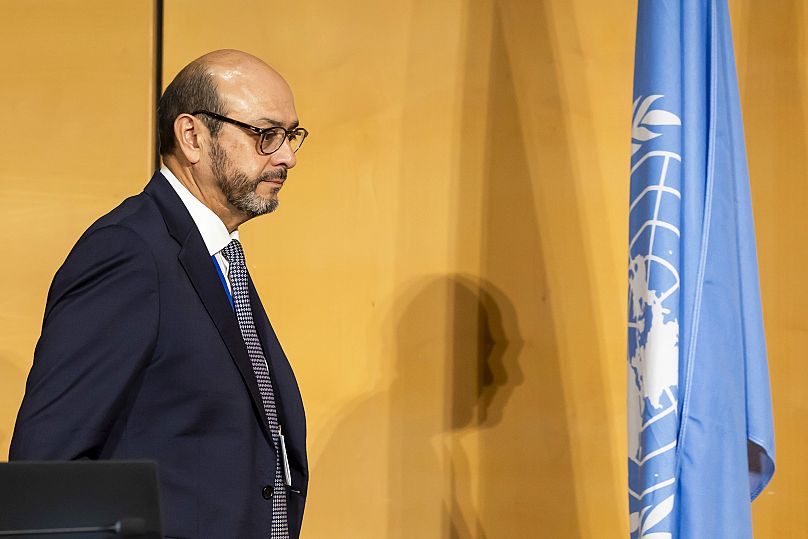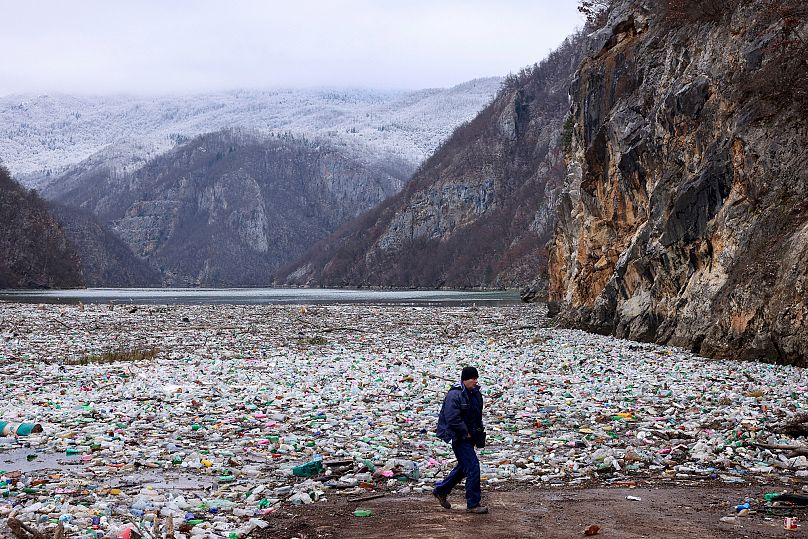Nations meet in Geneva for final push on treaty to curb world’s spiralling plastic pollution crisis

Talks kicked off on Tuesday in Geneva, Switzerland, to try to complete a landmark treaty aimed at ending the plastic pollution crisis.
It’s the sixth time negotiators are meeting, and they hope it will be the last. Talks last November in Busan, South Korea, broke down without an agreement.
A key split emerged over what should be included in the treaty. More than 100 countries are in support of a legally binding agreement that would see reductions in plastic production, as well as the phase out of single-use plastics and some chemicals.
Fossil fuel-producing nations, like China, Russia, Saudi Arabia and Iran, have pushed back against limitations on plastic production. They say redesign, recycling and reuse can solve the problem.
"We are pretty sure nobody wants plastic pollution. Still, we have not been able to find a systematic and an effective way to stop it,” said Luis Vayas Valdivieso, the chair of the negotiating committee that aims to develop a legally binding instrument on plastic pollution.
Delegates from most countries, the plastics industry and businesses that use plastics, environmentalists, scientists, Indigenous leaders, and communities affected by plastic pollution are in Geneva.
More than 3,700 participants are attending talks that will last 10 days. It is expected to be the longest session yet, with adjournment scheduled for 14 August.
Plastic pollution is a 'grave, growing and under-recognised' danger
Every year, the world makes more than 450 million tonnes of new plastic. By 2060, it could nearly triple as plastic production increases.
Much of this rapid increase has been caused by single-use plastics like drink bottles or fast food containers.
Plastic pollution is also a "grave, growing and under-recognised danger" to human and planetary health that is costing the world at least $1.5 trillion (€1.3 trillion) a year, experts have warned.
The new report published in The Lancet medical journal on Monday found that plastics endanger people and the planet at every stage in their lifecycle, from the extraction of the fossil fuels that make them to production, use and then disposal. They result in air pollution, exposure to toxic chemicals, and microplastics that can enter our bodies.
Experts said that, compared to air or lead pollution, plastic pollution and its health impacts could be mitigated by laws and policies. They called on delegates at the talks to finally agree on a treaty after previous failed attempts.
'Politically convenient' but environmentally ineffective
In March 2022, 175 nations agreed to make the first legally binding treaty on plastic pollution by the end of 2024. It was to address the full life cycle of plastic, including production, design and disposal.
Talks last year in South Korea were supposed to be the final round, but they adjourned in December at an impasse over cutting production.
“These negotiations hinge on two key questions: should we cap plastic production, and should we limit harmful chemicals added to plastics?" explains Professor Rosalind Malcolm, co-director of the Governing Plastics Network from Surrey Law School.
"Countries are split with the High Ambition Coalition pushing for full lifecycle regulation, including reducing production of fossil-fuel-based plastic, while oil-producing states argue plastics are only a waste management issue."
About 100 countries want to limit production as well as tackle cleanup and recycling, with many saying it is also essential to address toxic chemicals.
The EU is among those advocating for a treaty that addresses the entire lifecycle of plastics, from production to disposal, including the phase-out of certain plastic products that pose a significant risk to human health and the environment.
"If business as usual continues, plastic production will triple by 2060. The EU remains firmly committed to finding a global solution to curb plastic pollution and we expect all sides to be flexible and open in the negotiations," says Commissioner for the Environment, Water Resilience, and a Competitive Circular Economy, Jessika Roswall.
"We need to agree on effective global policies benefitting both people and the planet."
Panama led efforts to address production in the treaty in Busan, and negotiator Debbra Cisneros says they'll do the same in Geneva. The country is one of those backing addressing pollution at the source rather than solely through downstream measures like waste management.
“If we shy away from that ambition now, we risk adopting an agreement that is politically convenient but, environmentally speaking, is ineffective,” Cisneros says.
How high will negotiators aim?
For any proposal to make it into the treaty, every nation must agree. Some countries want to change the process so decisions may be made by a vote if necessary. India, Saudi Arabia, Iran, Kuwait and others have opposed that, arguing that consensus is vital to an effective treaty.
Negotiators are discussing making some provisions opt-in or opt-out to avoid a stalemate. Bjorn Beeler, international coordinator for the International Pollutants Elimination Network, said that would mean a treaty without teeth or obligations, with little value. Cisneros said that if carefully crafted, it's an option to find some common ground.
Tracey Campbell, an executive vice president at the plastics and chemicals company LyondellBasell and vice chair of the executive committee of the World Plastics Council, said she'll ask negotiators to “find a way to agree on a few things and get started” and then build from there.
She suggested tackling things like product redesign, recycled content mandates, and financing waste collection, waste sorting, and recycling technologies.
In contrast, Greenpeace will be in Geneva calling for at least a 75 per cent reduction in plastic production by 2040.
“We will never recycle our way out of this problem,” said Graham Forbes, who leads the Greenpeace delegation.
Yesterday



